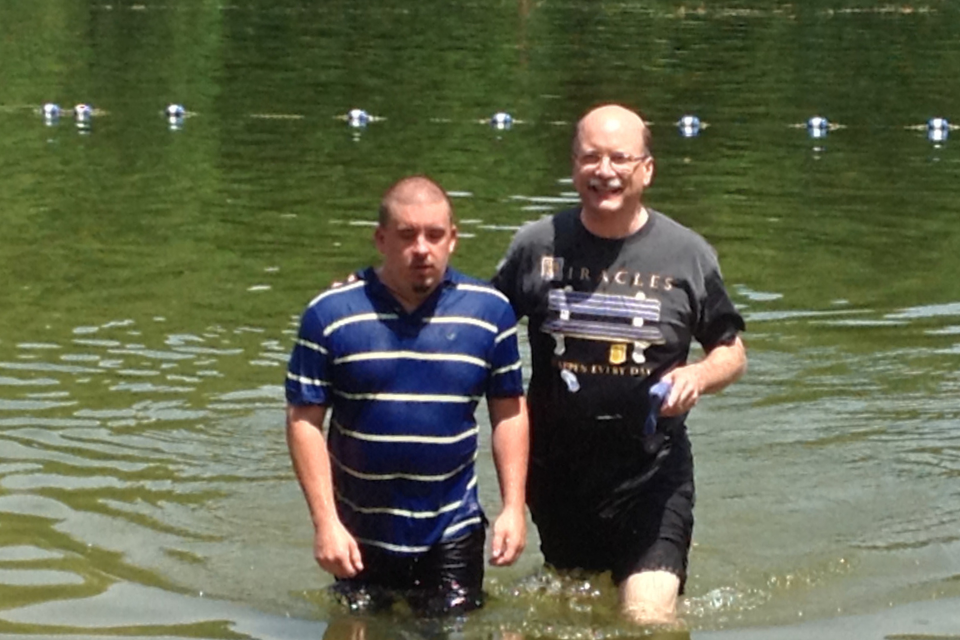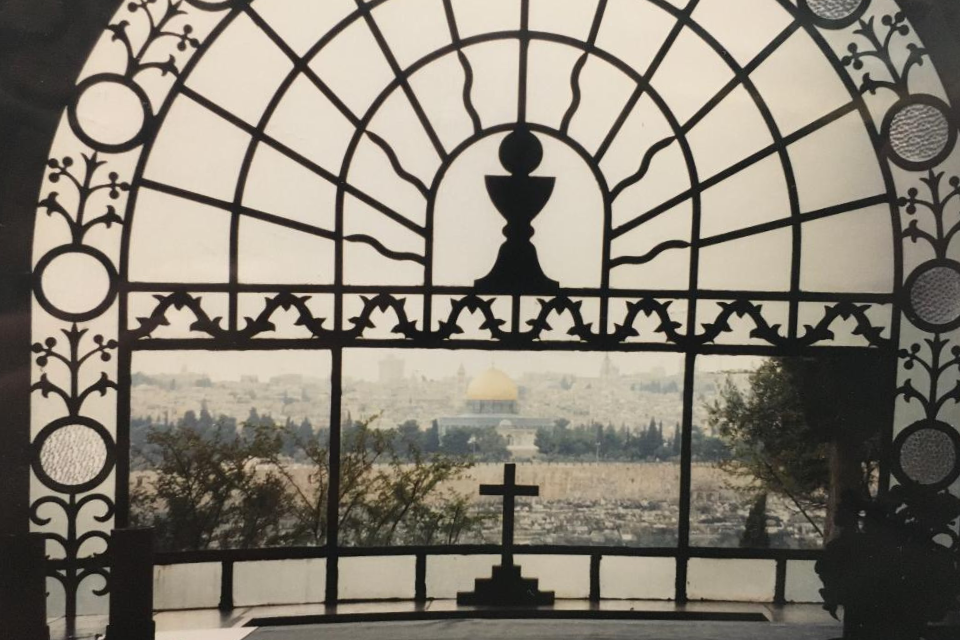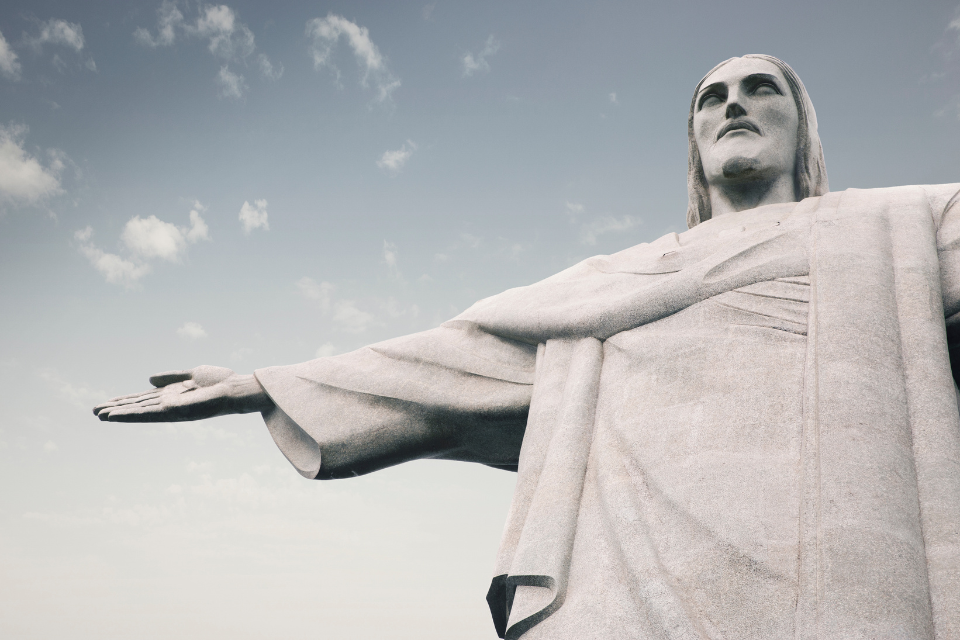By studying the Gospel of John, Glenn Wagner recalls life lessons he’s learned about the nature of our mortal life and the assurance of eternal life in Christ.
GLENN M. WAGNER
Michigan Conference Communications
The study of New Testament Greek in seminary introduced me to the life-shaping teachings of Jesus through the writings of the Apostle John in a way that has influenced me for more than 50 years. These insights from long ago continue to be life lessons of importance.
John was one of Jesus’ original 12 disciples. John and his brother James were Galilean fishermen before they changed vocations to follow Jesus. Biblical tradition credits this John with authoring the Gospel of John, the three New Testament letters of John, and the book of Revelation.
My enduring takeaway from studying New Testament Greek comes from John’s intentional use of two distinctly different words translated into English as “life.”
A quick word search in the Revised Standard Version of the Bible reveals that the Gospel of John mentions words translated from Greek into English as “life” 45 times.
A closer study confirms that 37 of John’s words translated as “life” come from the Greek word zoe. John’s use of zoe is often further linked to another Greek word, ayownios, which means “everlasting” or “eternal.” John wants to make it clear to his readers that believing in Jesus and following Jesus will lead to a different kind of life that is everlasting.
John 1:4-5 declares about Jesus, “In him was life [zoe], and the life [zoe] was the light of men. The light shines in the darkness and the darkness has not overcome it.” This important assertion from John shares a truth that Jesus is a source of a different kind of life, one that is eternal. Jesus can illuminate our human journey.

John 3:15-16 links eternal life with believing in Jesus, “Whoever believes in him may have eternal life [zoe]. For God so loved the world that he gave his only Son, that whoever believes in him should not perish but have eternal life [zoe].”
In eight references in John’s gospel, another Greek word is also translated into English as “life.” This alternate Greek word for life is psuche. Studying the context of these psuche references leaves the impression that life (psuche), as remembered by John, is mortal, in contrast to life (zoe), which is eternal.
The first reference to psuche in John’s gospel comes in John 10:11, where Jesus teaches, “The good shepherd lays down his life [psuche] for his sheep.” In John 10:15, Jesus adds the second psuche reference, “I lay down my life [psuche],” and repeats the exact words in John 10:17. In John 12:25, psuche is used twice by Jesus and zoe once in a clear differentiation between mortal life and eternal life: “He who loves his life [psuche] loses it, and he who hates his life [psuche] in this world will keep it for eternal life [zoe].”
In John 13:37-38, Simon Peter and Jesus share an important exchange with life-changing significance. Peter says to him, “Lord, why cannot I follow you now? I will lay down my life [psuche] for you.” Jesus answers, “Will you lay down your life [psuche] for me? Truly, truly, I say to you, the cock will not crow, till you have denied me three times.”
In John 14:6, Jesus declares, “I am the way, and the truth, and the life [zoe]; no one comes to the Father, but by me.” In another definitive statement about life, in John 15:13, Jesus states, “Greater love has no man than this, that a man lay down his life [psuche] for his friends.”

During Jesus’ last supper with his disciples in an upper room in Jerusalem on the night before his crucifixion, John remembers Jesus’ prayer for his followers. In John 17:2-3, Jesus makes references again to eternal life: “Since thou hast given him power over all flesh, to give eternal life [zoe] to all whom thou hast given him. And this is eternal life [zoe], that they know thee the only true God, and Jesus Christ whom thou hast sent.”
Near the end of his Gospel, which was the last of the four Gospels written, John writes, “These things are written that you may believe that Jesus is the Christ, the son of the living God, and that believing, you may have eternal life [zoe] in his name” (20:31).
These important teachings of Jesus, which John passes on to us through his account about voluntarily choosing to lay aside our mortal life (psuche) in order to receive the assurance of eternal life (zoe) from Jesus, are also central to understanding two of Christianity’s sacraments.
In the earliest celebrations of the sacrament of baptism, persons making a decision to become disciples of Jesus would enter a river. With the help of the person officiating, persons would be immersed beneath the waters in the name of Jesus. The immersion in baptism symbolizes a willing death, and the water passing over the head signifies a cleansing of past sin. In the early practice of baptism, the new Christian rising from the river’s water symbolizes a resurrection into a new way of life. The newly baptized person would depart from the stream on the opposite bank to symbolize a new beginning. The newly baptized believer would be given a new white robe to wear, symbolizing sins washed away, and would be welcomed as a new member of the Christian community. Baptism is a way the church continues to emphasize the willing surrender of our mortal life (psuche) for the greater eternal life (zoe).
In John 3, Jesus has an important meeting with a Pharisee named Nicodemus. Jesus lays the foundation for the essential personal choice to be “born anew” by water and the Spirit if we desire to enter the kingdom of God.

The sacrament of holy communion also serves as a reminder to Christians of Jesus’ ideas in John’s gospel of willingly choosing to lay down our mortal life (psuche) for the greater good of God’s eternal life (zoe). The elements of bread and wine are given to believers in the sacrament as the body and blood of Jesus so that we may remember his sacrifice of mortal life (psuche) for us and live in the direction of his eternal life (zoe) through our faithfulness.
I am at an age where the effects of mortal life (psuche) are becoming more noticeable. Fifty years ago, I had a healthy crop of hair to crown my head that is now very bald. For the past 30 years, prescription eyeglasses have assisted my changing vision. I am in my first year of utilizing hearing aids to enhance audio communication. I gave up physical contact sports following a broken leg in Israel in 2001. So far this year, I have been invited to more funerals than birthday parties. I know from experience that my life (psuche) will someday cease. More mortal life (psuche) is behind me than ahead of me.
From what I have learned through experience and wise teachers, we have many options in life (psuche) for how to spend our time. The habits we form, the relationships we foster, the knowledge we glean, the careers we pursue, and the priorities we adopt for ourselves will all play a role in our personal edition of life (psuche). The choices we make can affect outcomes for our living. But no matter our choices, our life (psuche) will come to an end.
John remembers that Jesus presents humanity with an important alternative to psuche for our living. Jesus offers each of us a life, zoe, that is eternal. Jesus’ promise for immortality and eternal living comes as a result of personal decisions to set aside our psuche to receive Jesus’ offer of zoe.
The Christian faith offers many life-changing examples and opportunities to lay aside life (psuche) in Jesus’ name in exchange for eternal life (zoe).

When we choose to set aside a personal agenda to give ourselves in obedience to God’s commandments for the greater good of community, we lay down mortal psuche for eternal zoe.
When we choose to forgo telling our own story to selflessly listen to the deep pain of another with compassionate concern, we offer psuche in the name of zoe.
When we volunteer our time and give of our resources to nurture children, feed the hungry, witness for peace, care for our environment, and work for reconciliation with our neighbors after the example of Christ, we participate in life in its eternal dimensions (zoe).
I am profoundly grateful for holy moments in my mortal life (psuche) when awareness of eternal life (zoe) has filled me with awe and wonder at God’s mystery, majesty, and eternal nature.
I have experienced this life-changing glory of God in moments of inspirational worship at church. I have been touched by God’s glory while walking through a mature forest or after reaching the summit of a high mountain with its spectacular view. I have felt God’s greater presence at the birth of a grandchild, during the wedding ceremony for my daughter, and at the deathbed of a loved one. I have sensed life (zoe) following a miraculous answer to healing prayer and again in a life-changing moment of forgiveness after years of bitter estrangement. I have been blessed to experience God’s eternal life (zoe) in the sacrificial witness of friends who give of themselves to help the least or boldly stand for justice in the face of indifference. An astronomer introduced me to the glories of God by pointing out the ever-expanding universe and the miracle of life that is part of its design. I have a greater appreciation for God through my encounters with the great diversity of the human family.
Thanks to important life lessons recorded in John’s gospel, I have also been helped along life’s journey to experience the eternal glory of zoe in Jesus. His sacrificial love models for the world the path from psuche to zoe. Those encounters have helped to make my mortal life (psuche) worth living and have inspired efforts to live in the direction of the eternal life (zoe) that Jesus embodies and promises to all who believe in him.
Last Updated on June 20, 2024

